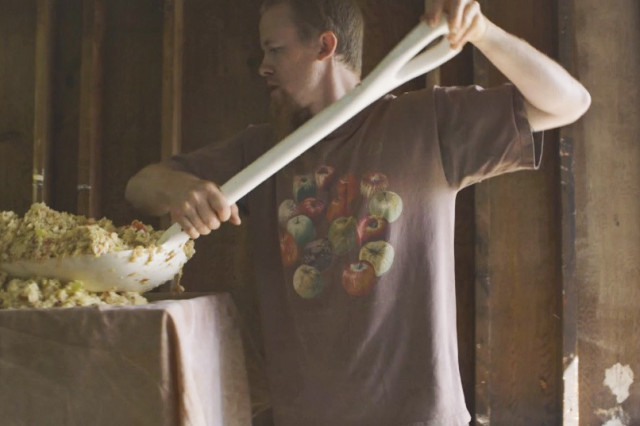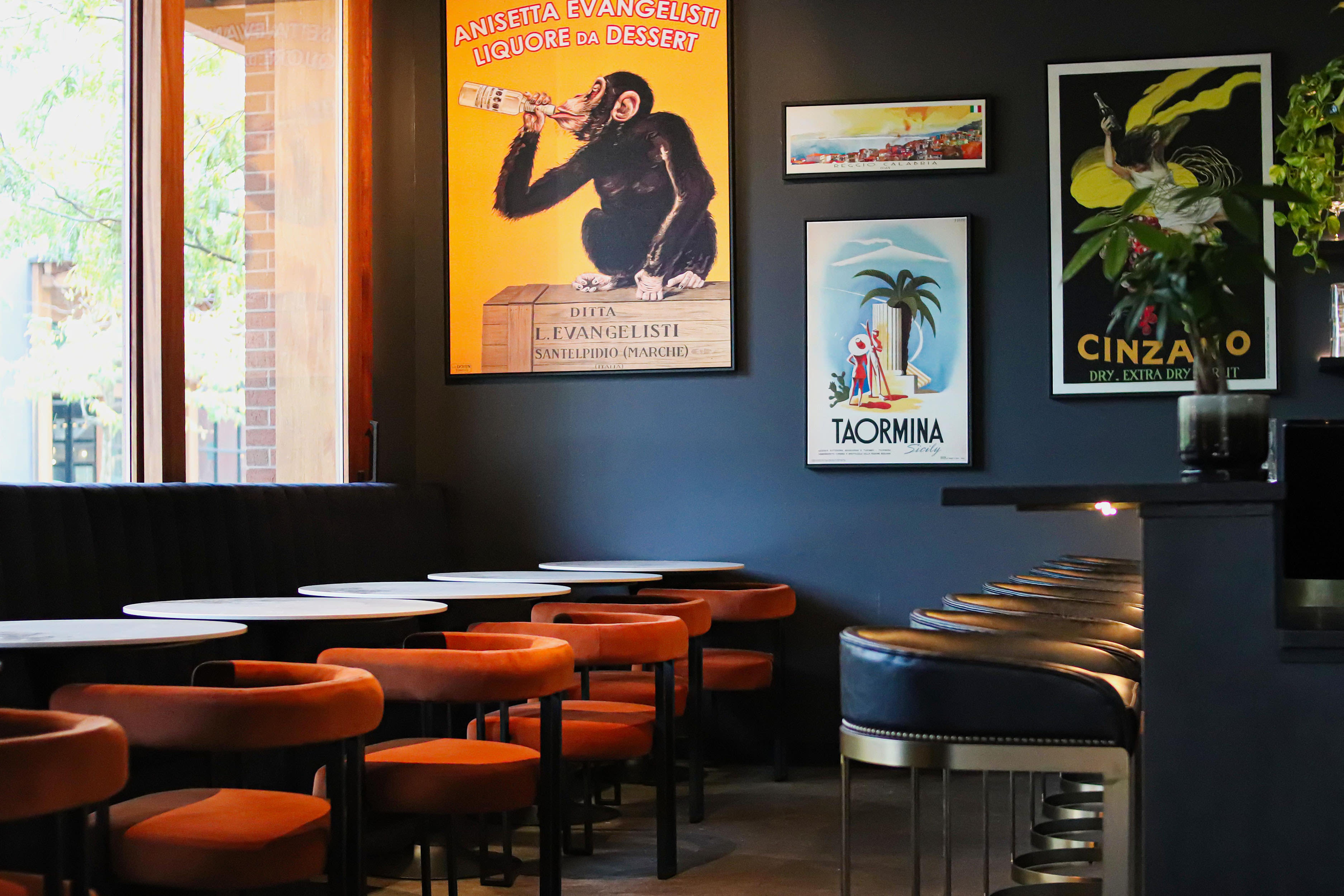5 Questions with Portland Cidermaker Nat West

Nat West's cider career began as a way to handle harvest-season surplus—a phenomenon familiar to many a home gardener—when a friend's heavy-branched home apple tree sparked the need for culinary creativity. After endless batches of applesauce, dried apples, and a lot of pies, West decided to grind the apples into a flavorful pulp and ferment the resulting juice in his garage and basement.
Tasting his complex, dry ciders, you'd reasonably assume West a student of international hard cider styles, but in fact the first sips of hard cider that passed his lips were of his own creation.
Seven years after that fateful harvest, Reverend Nat's Hard Cider has grown into a whole line of fresh flavors with a loyal local following, and the operation has outgrown its domestic roots. To meet the increasing demand for his dry hard ciders, West will open his own 3,500-square foot cidery and public tap room at 1805 NE Second Ave, a block from NE Broadway.
The cidery is slated for a March 2013 opening, and we sat down with West for a preview of new flavors and his hard cider philosophy.
What sets Reverend Nat's apart from other craft cideries in the Northwest?
A lot of cidermakers complain that there aren't enough cider apples being grown and that the industry is being stifled because of it. They think that only cider-specific English apples make good cider, but I don't agree. We have excellent quality delicious dessert apples in abundance—Washington being, by far, the larger grower of apples in the country—so our mission is to figure out how to make amazing cider using the fruit we have on hand now.
What characterizes a good apple for making hard cider?
Fermentation is brutal to fruit—the process strips out a lot of flavor—so you have to start with a robustly flavored apple or the finished cider will be thin and dull. I use a lot of heirloom apples from the Hood River area and some from here in the valley, but I really just can't get enough of them. There aren't enough heirloom apples being grown to meet the demand of cidermakers, so we look to the excellent high-quality fruit coming out of the Yakima valley—the kinds of varieties you can get in the grocery store.
Will you be able to explore new flavors at the new cidery?
We will definitely have more room to experiment at the new cidery. I'll be doing cold fermentations in a large walk-in cooler, we'll be able to have a barrel aging program, and we'll have room to accommodate more bottling of different varieties. We have a new year-round cider in the works already (Revelation Granny Smith, a single-varietal undergoing yeast trials now) as well as a spring seasonal—Hibiscus Hymnal with raspberries that's fully dry—and a summer seasonal—Holy Water-melon, made with fresh watermelon juice, ginger and lime.
Now that you won't be making cider in your garage or basement, what are you going to do with all that space?
We undertook at fairly major house reconstruction a couple years ago—jacked up the house, dug out basement, built a new foundation—and then I took pretty much all the space for the cider operations. We had big plans for actually, you know, using the space for living. So we're looking forward to being able to park the bikes in the garage and having a guest bedroom and not tripping over cider equipment when we go downstairs to do laundry.
What, in your opinion, is cider's place in the Portland drink scene?
I don't want cider to replace beer or wine or liquor. Most of the beer drinkers I know consider life to be one big tasting flight with new stuff coming along all the time. I just want to see cider included in everyone's rotation. Sometimes you feel like a wit beer, sometimes you need a nice Bordeaux, and sometimes you need a cider.




